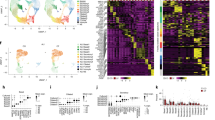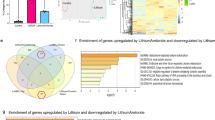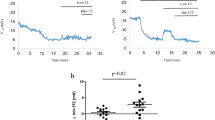Abstract
Summary: This study investigated whether the altered epithelial cell function in cystic nfibrosis (CF) concerns channels for passive diffusion of sodium across cell membranes. For this purpose, the potential difference (PD), which arises across the colonic mucosa from electrogenic sodium transport, was compared in CF and non-CF subjects, together with the effect on this PD from bathing the mucosa with the specific Na+ channel blocker, amiloride. The resting rectal mucosal PD did not differ significantly in the two groups. Amiloride caused a dose-dependent decrease in the PD (lumen negative to skin) in all subjects. Te mean amiloride effect was less in the CF population at 10-8, 10-7, 10-6, 10-5, and 10-4 M amiloride. The decrease of transmucosaal PD in CF patients was significantly less when compared with controls at 10-6 M and 10-5 M and suggestive of a similar trend at 10-4 M.
SPECULATION: Altered sensitivity of rectal PD to amiloride in CF possibly reflects an underlying ion transport abnormality, which could account for decreased Na+ absorption by the sweat duct in CF, and underlie altered epithelial function in other affected sites.
Similar content being viewed by others
Log in or create a free account to read this content
Gain free access to this article, as well as selected content from this journal and more on nature.com
or
Author information
Authors and Affiliations
Rights and permissions
About this article
Cite this article
Patton, C., Jenkins, M., Briggman, J. et al. EFFECT OF AMILORIDE ON POTENTIAL DIFFERENCE ACROSS RECTAL MUCOSA IN CYSTIC FIBROSIS PATIENTS. Pediatr Res 16, 1035–1036 (1982). https://doi.org/10.1203/00006450-198212000-00014
Issue date:
DOI: https://doi.org/10.1203/00006450-198212000-00014
This article is cited by
-
Effect of amiloride on sodium transport in the proximal, distal, and entire human colonin vivo
Digestive Diseases and Sciences (1988)



